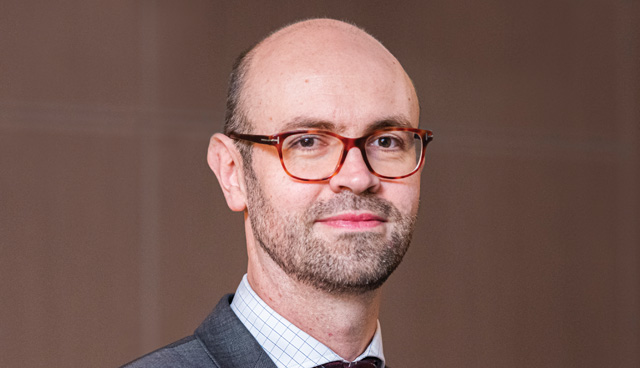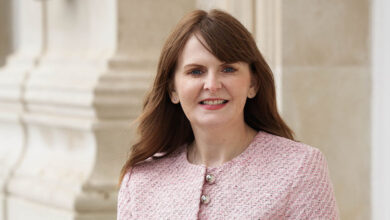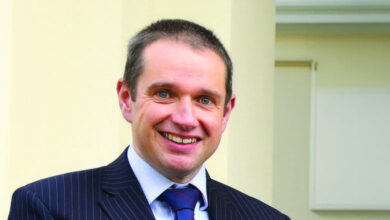How to engage the public on climate

Diarmuid Torney, Associate Professor in the School of Law and Government, Dublin City University (DCU) outlines findings from analysis done on the important lessons that can be learnt from Ireland’s citizen’s assembly around public engagement on climate.
Awareness of the necessity for public engagement and co-produced policy on climate action has never been greater. In Northern Ireland, the lengthy absence of Stormont has prompted calls for the establishment of a citizens’ assembly around various issues, ranging from the constitutional future through to economic policy direction. Included in this spectrum are strong calls for a citizens’ assembly around climate change, recognising the benefits and influence of the recent citizens’ assembly in the Republic of Ireland, and in the context of current plans to create a long-term energy policy framework for Northern Ireland.
DCU’s Diarmuid Torney, along with colleagues Laura Devaney, Pat Brereton and Martha Coleman, recently undertook an EPA-funded research project aiming to draw lessons from Ireland’s experience of conducting a citizens’ assembly for wider government initiatives and with a particular focus on climate change.
Torney outlines from the outset his recognition that a citizens’ assembly may not be appropriate for all public engagement around policy creation but recognises important lessons can be taken from the experience.
Established in 2016, Ireland’s citizens’ assembly was composed of a Chair and 99 randomly selected and broadly representative citizens with an Expert Advisory Group formed for each of the five topics of focus, including one on climate change.
Members of the public were invited to make submissions to the assembly and presentations were given by expert speakers throughout the course of weekend meetings between October 2016 and April 2018. Importantly, roughly the same amount of time allocated for speakers was given to participating citizens for deliberation, before votes were taken on a series of proposed recommendations.
Climate change was the second most engaging topic for the public, coming only second to the Eighth Amendment, in terms of submissions from the general public.
“Reflecting back from today, it is interesting and surprising that Ireland is now pointed to internationally as an exemplar in terms of a country that engaged in this type of deliberative public engagement,” says Torney, who highlights that other countries such as France, the UK and New Zealand have either established or are considering the creation of a citizens’ assembly on the back of Ireland’s experience.
Torney was himself a member of the Expert Advisory Group to the Citizens’ Assembly for its consideration of the topic ‘How the state can make Ireland a leader in tackling climate change’ and it was on this topic that the DCU research focussed.
The research consisted of three components, the first of which was an analysis of the near 1,200 submissions from the public to the citizens’ assembly. Qualitative analysis highlighted topic prevalence, with the top three topics discussed within submissions being national policy, emissions reductions and renewable energy.
The research also looked at the reason for submission (a call to action highest at 63 per cent), who was viewed as being responsible for tackling climate change (69 per cent assigned to government) and scalar framing (58 per cent national; 24 per cent global and 18 per cent local). Only 3 per cent of submissions adopted a position that could be described as sceptical of climate change.
A second element of the research was the establishment of two focus groups. The first contained previous members of the citizens’ assembly and the second was sourced from Rotary Club Ireland.
The citizens’ assembly focus group discussed their experience, developing a list of things that they would keep or change from the experience.
Highlights of those elements the group wished to retain were the likes of non-payment of honorarium, transparency through the creation of a website and live streaming, the education and learning element for citizens and the retention of the non-binding element of final recommendations, to allow for further expert input.
In listing changes, the group addressed the need to formalise the process and make it a regular feature of democracy with rotating citizen involvement, support more time allocation to and between topics, alongside the need for more international recognition of best practice and critique as well as better feedback to citizens post-event, amongst other things.
“There was a strong view that they hadn’t been given a lot of time to consider the climate change topic but they were reassured that an Oireachtas committee had then spent six months going through recommendations over a worry that recommendations would be transplanted from an assembly directly in to policy,” explains Torney.
The second focus group looked at the communication style of presenters to the citizens’ assembly and evaluated desirable communication techniques; such as keeping it simple, local and using powerful imagery, as well as providing solutions.
The third element to the research was the production of a resource for policy makers. The set of recommendations is aimed at policy makers who might seek to build deliberation into their public engagement strategies.
As well as a set of guidelines around effective communication on climate change in terms of communicating within a deliberative forum and public engagement more broadly, the research produced a set of guidelines for how best to use deliberation for public engagement, which are summarised below:
Distinct question: The question posed needs to be distinct enough to ensure a depth of conversation and tangible results.
Early engagement: Engaging citizens early in the policy cycle through co-design.
Leveraging community champions: Incorporating groups with existing community buy-in into deliberative forums or delivery of actions.
Deliberation impact: A guaranteed response from government to recommendations.
Boost diversity: Increasing inclusivity in participation.
Engagement as a process: A continuous learning and feedback process for both politicians and citizens rather than a one-off event.
Responsive format: The implementation of agreed rules to ensure respectful debate and non-repetitive, inclusive discussion.
Time allocation: Sufficient time to read and digest expert material in advance of the event. Deadlines and agreed time allocated to topics must be adequate.
Trusted speakers: Ensuring balanced and transparent selection of those informing discussion.
Reflective discussion: Ensuring that citizens not only receive information but are given time to reflect and discuss it.





